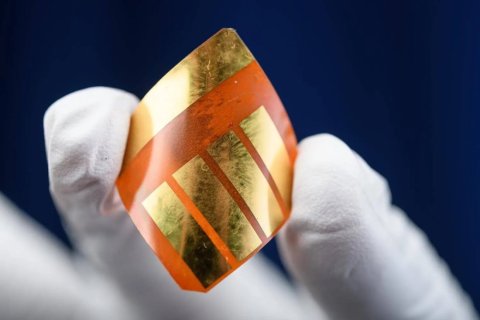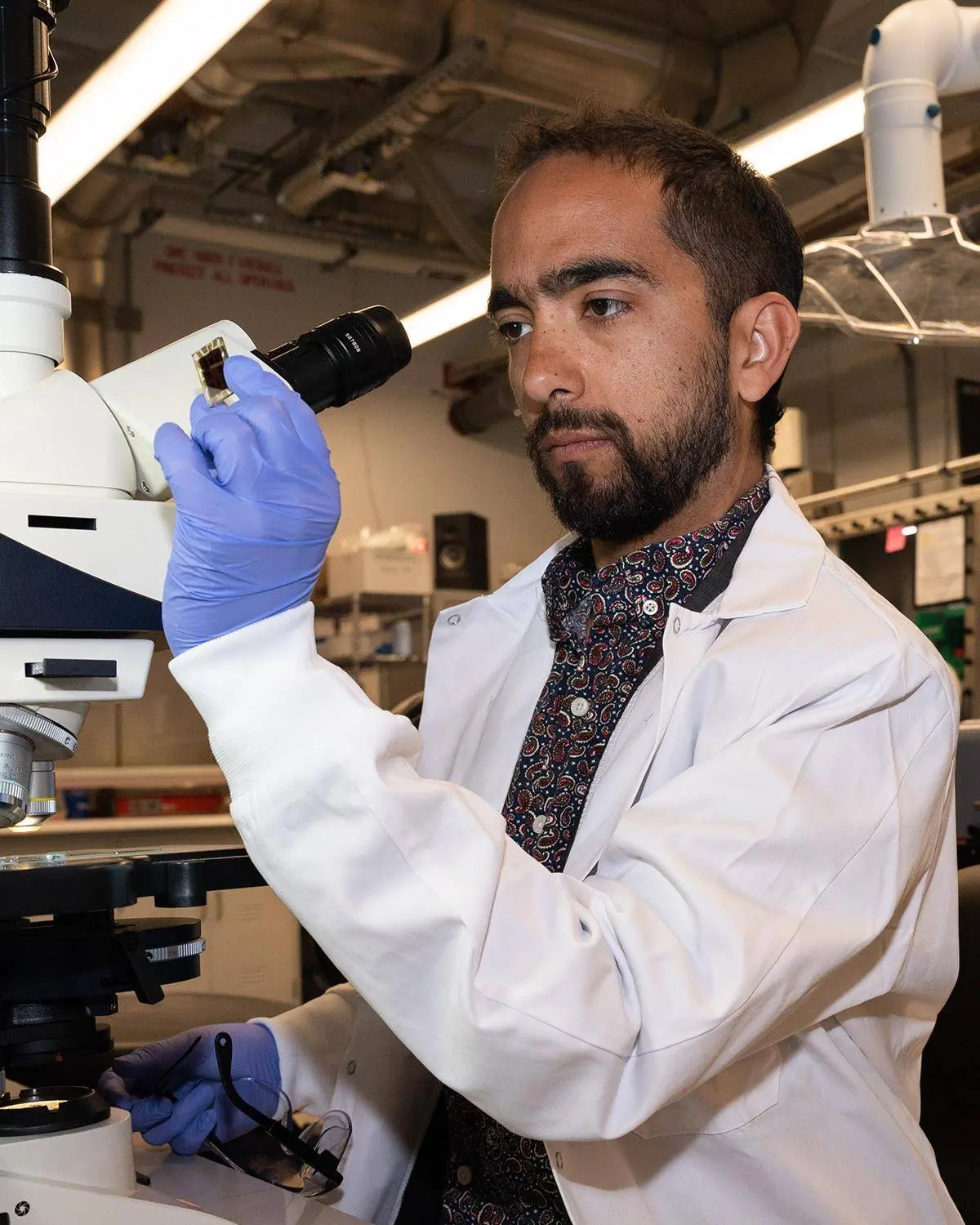
Juan-Pablo Correa-Baena’s journey to sustainable solar energy brought him from Colombia to campus.
As a child in Colombia, Juan-Pablo Correa-Baena would look at the sky and think about how things could be different.
“Fossil fuels dominate Colombia’s energy production landscape even though renewables are readily available,” said Correa-Baena, associate professor and Goizueta Junior Faculty Chair in the School of Materials Science and Engineering. “My home country is a large producer of oil but also boasts a huge potential for solar energy production. I grew up wondering why Colombia didn’t make that switch.”

It wasn’t until college that Correa-Baena was able to put his curiosity into action. After earning his undergraduate degree in mechanical engineering with a minor in environmental engineering, he focused on solar technology while pursuing his Ph.D.
He now leads a solar energy materials research initiative for Georgia Tech’s Institute of Matter and Systems and Strategic Energy Institute.
“I want to ensure that all countries around the world have access to solar energy by helping lower deployment costs,” Correa-Baena said.
His research focuses on the development of new materials for low-cost semiconductors used for optical and electronic applications. Correa-Baena’s team also works on advanced techniques for characterizing these very small materials and their interactions. He was awarded a highly competitive Sloan Research Fellowship in 2024 to support these efforts.
The award came shortly after his recent study that unraveled the mechanism that causes degradation of a promising new material for solar cells — and how to stop it using a thin layer of molecules that repel water. His lab’s findings are the first step in solving one of the key limitations of metal halide perovskites, a new material used to absorb light. They are already as efficient as the best silicon-based solar cells at capturing light and converting it into electricity.
The field’s next challenge, Correa-Baena said, is to better incorporate solar energy into the nation’s electrical grid.
“Now that solar is as affordable as oil, the U.S. must be more proactive in finding ways to transport and store it,” Correa-Baena said. “The government often has been very reactive at this. ‘It’s cheap! Let’s deploy it. Oh wait, how do we connect it?’ The Inflation Reduction Act is a great proactive step that is shaping the future of solar energy deployment.”
He’s also encouraged by Georgia’s investment in solar power and investments made by solar companies Qcells and Silicon Ranch, among others. And yet, just as he looked up as a child in Colombia, he sees the opportunities for more when he looks down as an adult.
“Whenever I fly in and out of Atlanta, I see a lot of roofs with nothing on them. Georgia gets so much sunlight, and those businesses, warehouses, and homes are prime spots for solar panels,” he said. “Things are going well for deployment, especially with solar farms. But we must push for more consumer activism and talk to our politicians about paying closer attention to where this technology can be further deployed.”
Read about all of the Powering Up researchers in Georgia Tech's College of Engineering.